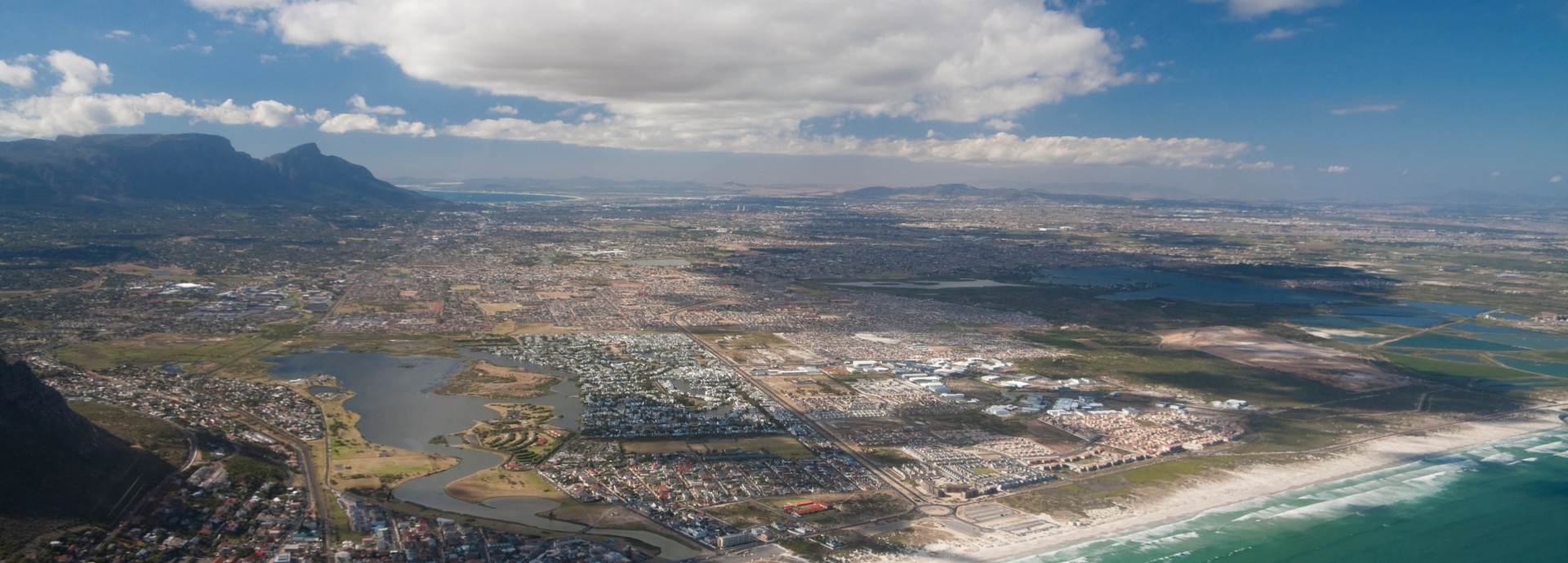A project working with marginalised residents of township communities in South Africa which are facing crises and systematic risks exacerbated by climate change has received £1million in funding.
Led by Dr Dalene Swanson at the University of Stirling, and supported by the UK Research and Innovation (UKRI) Global Challenges Research Fund’s (GCRF) Collective Programme, the research works closely with local people to address interrelated socio-environmental hazards affecting township communities in the Cape Flats area of Cape Town, and support their efforts to reduce disaster risks.
It is one of more than 140 projects, announced today (Friday 20 November), supported by the Programme – a £1.5 billion fund which will enhance the overall impact in the areas of global health, education, sustainable cities, food systems, conflict and resilience.
The project: UKRI GCRF Water and Fire: Enhancing Capacity and Reducing Risk through 15 'Best Bets' for Transformative Adaptation with Vulnerable Residents on the Cape Flats is a partnership between the University of Stirling, local research non-profit organisation, the Sustainable Livelihoods Foundation NPC, the University of Cape Town, the University of the Western Cape, and participating risk-affected residents of the Cape Flats of South Africa.

University of Stirling
By working alongside and understanding community and individual responses to climate change-induced or exacerbated crises, this project aims to co-develop a set of resilience actions with risk-affected residents.
Dr Swanson said: “Recurrent rapid-spread fires, widespread water shortages and drought, and large-scale flooding, are escalating socio-ecological hazards exacerbated by climate change, which disproportionately impact on excluded residents of settlements on the Cape Flats.
“In an age of government austerity and economic strain, township residents have been forced to become increasingly self-reliant and resourceful. By working alongside and understanding community and individual responses to climate change-induced or exacerbated crises, this project aims to co-develop a set of resilience actions with risk-affected residents. These coproduced resilience actions are designed to mitigate socio-environmental disaster risks, especially those relating to drought, floods, and fire, and for which poverty, inequality, crime and violence exacerbate disaster risks.”
The research project recently welcomed four new postdoctoral fellows: DrSkhue Ncube, Dr Allan Gillies and Dr Lesley Gibson, who will be based at the University of Stirling, and Dr Tsitsi Mpofu-Mketwa, who is based at the University of Cape Town.
Dr Swanson added: “The research also has implications for other contexts where residents are vulnerable to the deleterious effects of socio-ecological disaster risks induced or exacerbated by climate change. Through co-mobilising local knowledges and the co-development of a set of resilience actions, this project aims to benefit risk-affected residents of the Cape Flats in their efforts to mitigate disaster risks and achieve sustainable livelihoods.”

